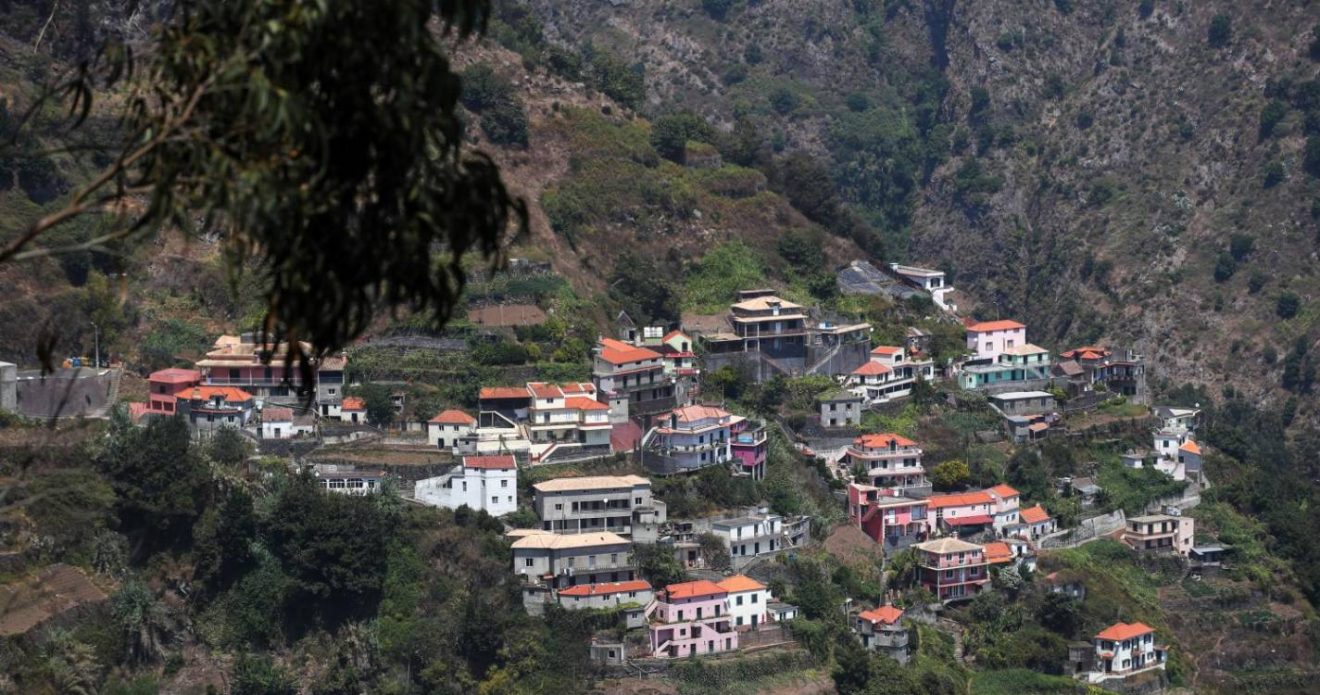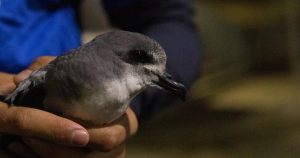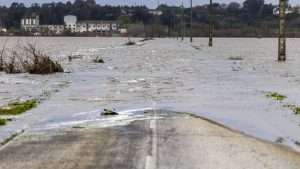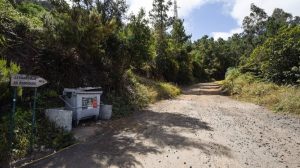The residents of Fajã das Galinhas understand the need to be permanently relocated for safety reasons, a decision taken after the fire in Madeira, but while some feel relieved, others regret leaving a life behind.
José Paulo Rodrigues is one of the 40 people who are still housed at the Câmara de Lobos community centre and has been living there since the 17th of August when 120 people were removed from Fajã das Galinhas due to the fire that has consumed more than five thousand hectares of the island.
Located in the mountainous regions of Estreito de Câmara de Lobos, the unstable area, has been damaged by several landslides over the years, and residents have become accustomed to living dangerously.
In the case of José Paulo Rodrigues, the consequences of a collapse in March last year will accompany him for the rest of his life.
“Last year I was severely injured during a landslide. That’s why I’m like this. My back was all broken. Now I have to carry a colectomy bag,” he says.
Supported by a cane, the 56-year-old man was prevented from working, after decades of toil on the lands of Fajã das Galinhas.
“There are things that are not forgotten. I went to the centre. My wife was a little behind. The first one fell on top of me. Then a second one fell. I still saw her coming, but I couldn’t walk. I was buried and my wife also suffered,” he recalls.
The story serves to illustrate how dangerous the place is, says João Paulo, who has lived in the Fajã for almost 30 years. He only has one request: that his future house is not too far away because “he is used to the trees” and is “sick” when he is near the sea. “I sometimes passed by, I saw a stone fall. That is dangerous. There are areas where you can’t walk. So, now with the fire, it will be worse”, he added ominously.
According to the Mayor of Câmara de Lobos, Leonel Silva, the provisional rehousing of the families of Fajã das Galinhas should be completed by the end of the week.
Until then, Carolina Gomes will remain at the community centre along with her husband and three children, aged 1, 4, and 7. The 25-year-old has no family connection with Fajã das Galinhas but was forced to look for accommodation in the outlying areas due to high rental prices.
“It was simply the cheapest place given our financial conditions. The rents were very high and that’s what there was,” she explains, while building a puzzle to entertain one of her children. I always felt extremely comfortable and safe living there, it was a safe area to live. The problem is the road, trees, and stones are precariously positioned and the road is littered with debris, says Carolina Gomes, who accepts the decision, despite regretting it.
“I really liked that place. For me, Fajã das Galinhas was the beginning of a new life. It’s a bit sad because I fought a lot to get there. Although the house was not mine, given the conditions we were in before, it was very good. It was a new beginning. I’m a bit sad because I’m going to leave, my new beginning behind.”
Next door, Maria Alice and Filomena Santos share a sofa where they talk about what is happening on television. The two were born and have always lived in Fajã das Galinhas, but they feel relieved to live in a safer area.
The two elderly women regret having to move saying that it is difficult to leave a place you have always lived in, but the conditions created by the instability of the mountainside give ‘no peace.’
“I’m afraid here. I’m afraid of passing on the road and the rock on top. When we passed by bus it was always with our hearts in our mouths waiting for the end of the trip. My husband always looked away, I myself have no problems says Maria Filomena. “I have always lived there, it is my family’s land and I have always felt safe. If the rock fell, I wouldn’t go to my house, because thank God I live in an area where I feel good,”she says.
Maria Filomena Santos is therefore not opposed to rehousing, but promises never to leave Fajã das Galinhas: “Even though I will live in another area, I will still go there because I have my little things there. I will never abandon my home. I will go there from time to time to clean up and see how things are. I worked 40 years for my house. It took a lot of sacrifice.”
On August 17, 120 people were removed from the site, in the parish of Estreito de Câmara de Lobos, in the upper areas of the municipality, due to the flames that surrounded the area making the only access road impassable.
On Saturday, the Mayor of Câmara de Lobos said that Fajã das Galinhas does not offer safe conditions for people to return to their homes and said that the municipality will soon start the construction of 30 houses in an investment of 7.5 million euros in the Castelejo area, close to Fajã das Galinhas, where the risks are less.
The project is not new, having been designed last year during the local housing strategy where Fajã das Galinhas had already been flagged as being an area of high risk, the Mayor stressed.
The President of the Government of Madeira, Miguel Albuquerque, has already corroborated the decision, stating that the island executive intends to rehouse the residents of Fajã das Galinhas in a “more comfortable area,” since the site remains isolated following the fire.
Samantha Gannon
info at madeira-weekly.com
Photo: MAN FROM GOUVEIA / LUSA/JM
Views: 18






